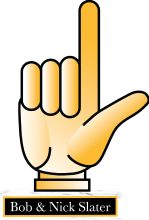“If people don’t want to come out to the ballpark, nobody’s gonna stop ’em.” Yogi Berra
So, too, if people don’t want to work at their current place of employment anymore, “nobody’s gonna stop ‘em.” This blog and the next will address what has been dubbed the Great Resignation – the fact so many people (especially young professionals) are contemplating quitting their job, particularly in the health care and tech industries – and consider how to use this phenomenon to further your career whether you are planning to depart (today’s topic) or to stay (next blog).
If you’re trying to find a new and better job, how do you craft a resume that stands out, that serves as an effective advocate for your candidacy? Consider:
Keep it simple
Document your education, work history (in chronological order with the most recent job at the top), outside interests, and anything personal you choose to reveal. What more does anyone need to know?
Show your body of work
Your resume must show what you can do as proven by what you have done. Make clear in your work history what you accomplished at each stop along the way. How did you add value? Can you fairly dollarize your contributions? Don’t exaggerate your performance. Making unrealistic claims is a quick way to destroy trust and cast doubt on the accuracy of your résumé. Such exaggeration may also create doubt about what you say if you’re interviewed.
Unless you burned a bridge, list in your work history the name and contact information of every person you reported to. A sharp interviewer will ask for it anyway. Show by your transparency that you had good rapport with each of your managers along the way. If your prior company has a policy of not discussing former employees, no matter. That’s out of your control.
Emphasize your skills
After your work history, consider pulling together all the skills you’ve developed under a heading labeled “Skills.” If you’re trying to move from one industry to another where the applicability of your skills isn’t as obvious, consider modifying the heading to say, “Transferable Skills.” You’re implying that the skills you’ve listed will ensure your effectiveness in a new role.
Avoid descriptions such as “Talented,” “Driven to Succeed,” “Goal-oriented,” and “Motivated.” These are unsupported claims, not skills. Examples of demonstrated skills include Analyzing Data, Leading Teams, Public Speaking, and Serving Customers. Even, if genuine, “Bringing Order to Chaos.” A list of seven to ten skills works fine. Be ready to expand on every skill you claim.
Share outside interests
While some argue that employers don’t care about a candidate’s outside interests, we disagree. Outside interests reveal much about people, including their zest for life, sociability, and likability. Someone with interests and accomplishments outside of work — past and present — is more likely to be a lasting asset of the organization. That you were involved in scouting, played on your school’s athletic teams, or were active in a large fraternity or sorority says something about your people skills. As does your current involvement in civic affairs or church work. Your résumé reader may be trying to determine whether you will mix well with clients. Outside interests provide an important clue.
Add a little humor to differentiate
If it comes naturally to you, use humor to show a touch of self-confidence and a sense of your style. Something subtle for you to laugh about with your interviewer, and that makes your résumé memorable.
![]() The last item listed on my résumé was “Four-inch vertical leap and cat-like quickness.” It never failed to get noticed or spark a discussion, in a good way.
The last item listed on my résumé was “Four-inch vertical leap and cat-like quickness.” It never failed to get noticed or spark a discussion, in a good way.


